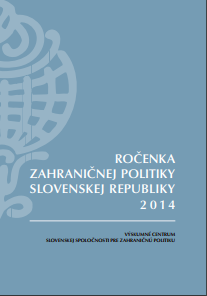
We kindly inform you that, as long as the subject affiliation of our 300.000+ articles is in progress, you might get unsufficient or no results on your third level or second level search. In this case, please broaden your search criteria.

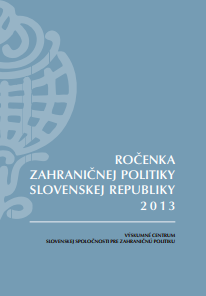
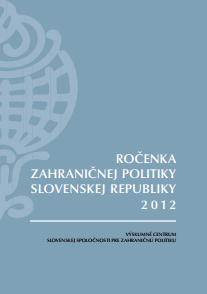
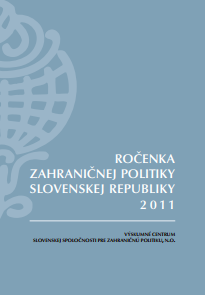
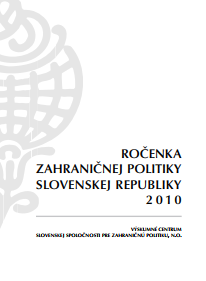
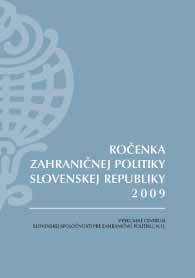
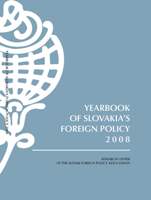
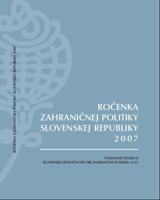



Although elections enable voters to shape the political structure of a representative body, the conduct of elections should not be the end - but the beginning of continuous communication between the citizens and parliamentarians. Therefore, the goal of this article is to explore and identify institutes, which would facilitate the relationship and communication between citizens and members of parliament after elections. The focus of the paper is on the analysis of the Serbian parliamentary practice, and the assessment of the implementation of the institutes of Parliamentary Law, while indicating their implementation through the current practice at the National Assembly of the Republic of Serbia. In addition to public hearings, assembly working body sessions out of the Parliament headquarter, opening of the MPs’ offices in provinces, submission of the applications and proposals, citizens’ participation in the legislative process, the paper points out important problems that, in the Serbian parliamentarian practice, prevent, the realization of constitutional right of voters to propose laws. The article observes the tendency, dominated in the last few years, that endeavors to “open” the National Assembly (as an institution) to the citizens, according to the good practice implemented and proved in foreign parliaments. However, this does not imply an adequate contact between citizens and Members of Parliament (individually). After indicating the standards of the Inter-Parliamentary Union and results of recent global surveys, the conclusion of the paper identifies opportunities for further parliamentary development that would support the improvement of relations between citizens and their representatives in the Parliament after the elections.
More...
The paper analyses historical development of the US civil service since XIX century to date. Until the end of XIX century, the US federal service was characterized by wide-spread political patronage and corruption, which resulted in a creation of a so-called »spoils system«. The Pendleton Act of 1883 made a radical shift in the development of the US civil service, by introducing the concept of non partisan merit and protection from political influence in the recruitment, promotion and retention of federal government workers. The author argues that the concept of merit further denotes a public service character – a desire to act not for individual self interest but for a broader public good. Merit is therefore related to values, ideals and ethics to the appropriate role of the civil service in democracy and thus to governance in a democratic society. The paper further analyses the provisions of the Civil Service Reform Act of 1978, which constitutes the first major reform of the federal public service personnel system since the Pendleton Act. The idea was to develop civil service reform proposal that would make government more efficient and businesslike. Objectives were to modernize human resource management by streamlining the system through simplification and decentralization and restructure the reform management structures by replacing the Civil Service Commission, creating the Senior Executive Service, as a highly-professional senior civil service and to address such issues as productivity, compensation and performance evaluation. Performance appraisals and merit pay were standardized and procedurally sound, but lacked in higher productivity outcomes. The original merit pay system was therefore eventually replaced and abandoned in 1993. National Performance Review (NPR) shifted the focus away from the individual performance appraisal and rewards and toward agency or organizational goals instead. Furthermore, the Senior Executive Service did not become the higher civil service that its framers had envisioned. However, members of the Senior Executive Service do enjoy the prestige of senior personnel and their position allows them to focus on leadership and career development. Nevertheless, the Senior Executive Service structure has also allowed politicians to infiltrate their political supports into the career bureaucratic structures, which had a negative effect on career civil servants morale. Politicization remains one of the weakest points of the US federal administration. The number of political appointees steadily increased during the last half ot the 20th century and beginning of the 21st century, as did the methods of appointment to those positions. A great majority of political appointees lack minimal technical qualifications or understanding of how to work with the career civil servants. Therefore, their increased number creates an extra political and management burden for the White House. Although the Presidents have legitimate authority to direct the executive branch, the career civil service assumes a level of expertise that permits questioning political directives if they are questionable or unsound. Further politicization of the civil service may, however, jeopardize civil servants commitment to broader public good and integrity in performing one’s job to the best of one’s ability and therefore put at risk the realization of the US civil service merit ideal.
More...
Authoritarian Modernization of Russia in the 2000s (Olga Kryshtanovskaya, pp. 27-34) A Bit of Luck: The Development of the Political System in Russia (by Aleksey Chesnakov, pp. 35-40) Has the Economic Crisis Changed the World View of the Russian Political Class? (by Valery Fadeev, pp. 41-46) Dilemmas of Russia’s Modernization (by Vladislav Inozemtsev, pp. 47-51)
More...
Ky punim, përmbledh rezultatet e një hulumtimi që përqëndrohet në problemet e ndërtimit të politikave publike, në Hungari. Motivi kryesor subjektiv dhe determinant i temës që udhëheq këtë punim, është një interes këmbëngulës mbi dështimet e qeverisë, në dukje të parëndësishme, të pranishme në fushat të ndryshme të veprimtarisë qeveritare – në mënyrë praktike të pavarura nga niveli qeverisës (pushtet qendror apo vendor) ose sektori publik.
More...
Administratat publike kombëtare në ditët e sotme, janë të detyruara për t'iu përshtatur ndryshimeve shoqërore në të gjithë botën (Pollitt, 2004). Në BE, Strategjia e Lisbonës, është një nga stimujt kryesorë për të luftuar dhe zhvilluar administratën publike (AP), operacionet bazuar në përqëndrimin tek konsumatorët dhe të gjithë aktorët e tjerë. BE, nuk ka asnjë mjet të paraparë për zhvillimin e cilësisë në AP, por KE rekomandon veçanërisht vetëvlerësimin dhe standardet e jashtme, si dhe përmirësime në bazë të Vlerësimit Kornizë, të Përbashkët (CAF), për organizatat e sektorit publik në kontekstin e reformave e përgjithshme të AP. Qeveria e Republikës së Sllovenisë, ka konstatuar në mandatin 2004-2008, se qëllimet kryesore të saj janë për ta bërë administratën përdorues të orientuar, funksionimin e saj të hapur dhe transparent, si dhe për të siguruar efikasitet dhe cilësi në të gjitha nivelet. Kjo e fundit në mënyrë specifike, përfshin krijimin e një sistemi të cilësisë brenda AP - dhe është edhe objektivi i Strategjisë për Zhvillim e Sllovenisë, deri më 2013.
More...
Shoqëria rumune, është në një proces ndryshimi, ku të gjitha aspektet ekonomike, sociale, politike dhe qytetare kanë regjistruar një dinamikë të re, në përpjekje që të përshtaten me kushtet e sotme. Tashmë, është funksional një sistem demokratik, ku ekonomia ka rezultate të suksesshme dhe është zhvilluar një shpirt demokratik në mentalitetin shoqëror. Çështjet e decentralizimit, janë të lidhura drejtpërdrejt me procesin e gjithanshëm të demokratizimit të shoqërisë dhe kjo është pjesë e qeverisjes së mirë.
More...
Lehtësia e përdorimit të informacionit, të teknologjisë së komunikimit dhe prania e tyre e gjerë, kanë sjell për çdo ditë një sasi të madhe të të dhënave dixhitale që krijohen në sektorët publik dhe privat. Prania e gjerë e qeverisjes elektronike dhe përdorimi në rritje i komunikimit dixhital, në botën e zhvilluar e shton këtë gjë edhe më tepër. Këto të dhëna jo vetëm që paraqesin dëshmi për proceset, hapat dhe vendimet e marra nga administrata publike, por ato janë edhe një burim informacioni për brezat që vijnë dhe për studimet e tyre rreth së kaluarës. Jo vetëm që këto të dhëna dixhitale duhet të jenë në dispozicion, por ato duhet të jenë të gjetëshme, të shikueshme dhe të prezantueshme, si dhe të besueshme dhe autentike.
More...
Marëdhënia shtet-shoqëri, është një nga fushat tё rëndësishme ku mund të vërehet ndikimi transformues i zhvillimeve në teknologjitë e komunikimit dhe informacionit. Në varësi të nivelit të disponueshmërisë së tyre për zbatim, që nga fundi i viteve 1990, këto teknologji të reja kanë qenë të përdorshme në sektorët e shërbimeve publike, si dhe në të tjerët, për efekt përmirësimi në shërbime publike. Pioniere në këtë drejtim kanë qënë disa nga qeveritë vendore, për t‘u ngritur më pas në nivel kombëtar, ku disa qeveri kombëtare kamë iniciuar praktikën e e-qeverisjes. Të inkurajuara por, dhe nën presion nga këto hapa paraprake, shumica e shteteve kanë filluar të rishikojnë përmbajtjen dhe formën e ofrimit të shërbimeve të tyre publike dhe ndërmorën hapa drejt përgatitjes së strategjive të e-shtetit të tyre.
More...
Qёllimi i zhvillimit tё sektorit publik, i lidhur ngushtë me lindjen e një cilësie të re, është ai për të krijuar një sistem të integruar dhe të mirë-menaxhuar tё burimeve njerëzore të pushtetit qendror dhe lokal dhe njëkohësisht, për të siguruar zhvillimin e duhur të mëtejshëm të sistemit dhe programeve përkatëse. Një nga fushat e mbuluara nga reforma e administratës publike, në vendet e EQL, është zhvillimi i burimeve njerëzore dhe rritja e këtij procesi. Edhe pse shtetet e reja anëtare të BE-së, kanë shumë specialistë të arsimuar mirë dhe të kualifikuar, ata gjithashtu kanë një bazë joadekuate ligjore dhe një traditë trainimi, të cilat jo vetëm pengojnë mbarëvajtjen e trajnimit, por edhe ndalojnë përparimin e të gjithë sektorit të menaxhimit publik.
More...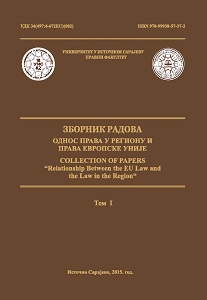
In this paper we give a theoretical review and the development of the legal framework which regulates psychological harassment on the workplace (mobbing) in the Republic of Macedonia, as well as relevant EU regulation. We did a detailed analysis of the legal framework in the Republic of Macedonia which regulates the mechanism for protection and prevention of psychological harassment on the workplace. For the purposes of this paper we conducted an empirical study in the period of September 2009 till august 2013, and measured the level of legal implementation of the amendments to the Law on Employment Relations adopted in September 2009 which were supposed to improve legal protection and prevention of mobbing. We conclude the paper with a legal analysis of the latest novelties in this field,the adoption of the Law on Protection from Harassment on the Workplace adopted in May 2013.
More...